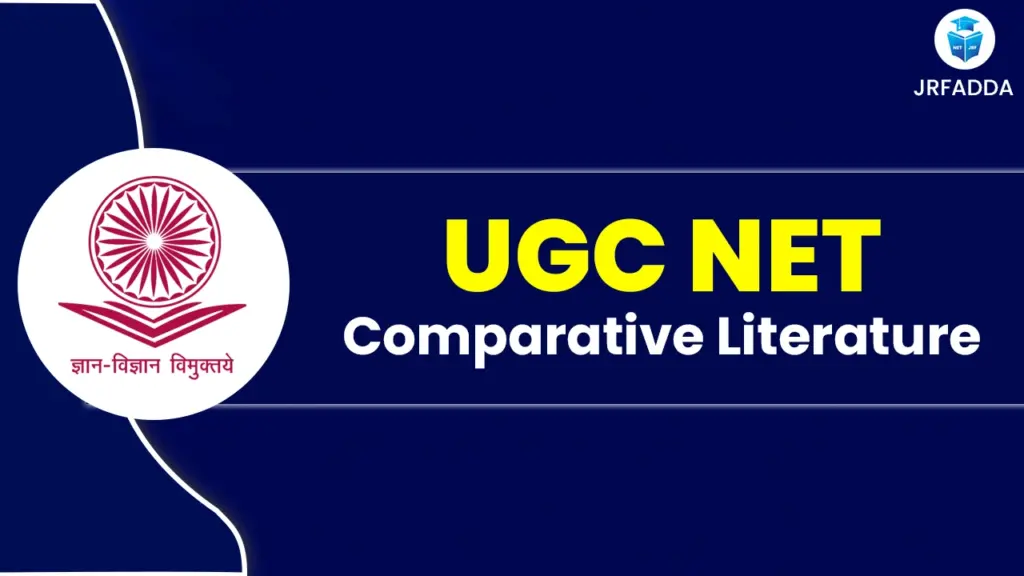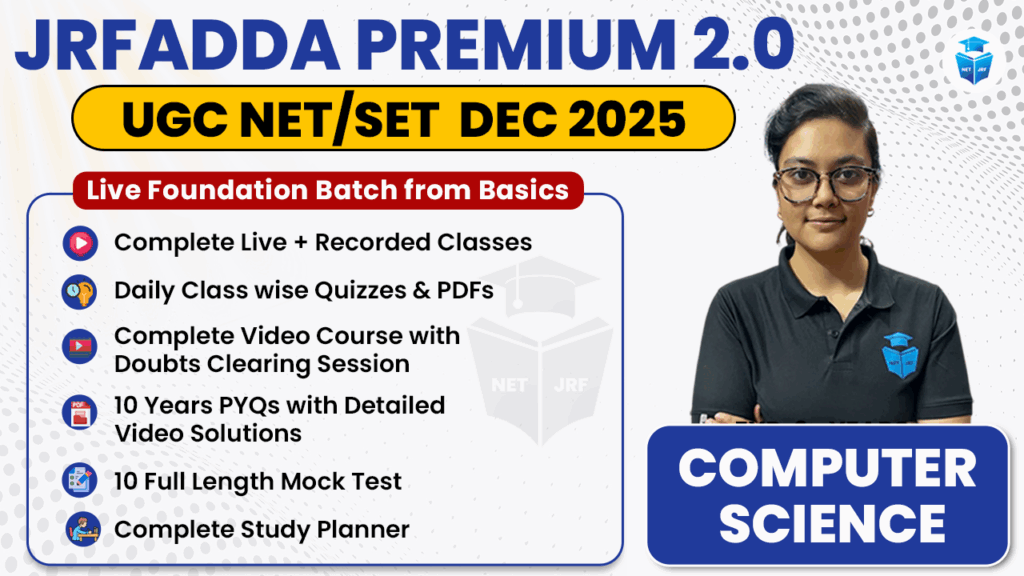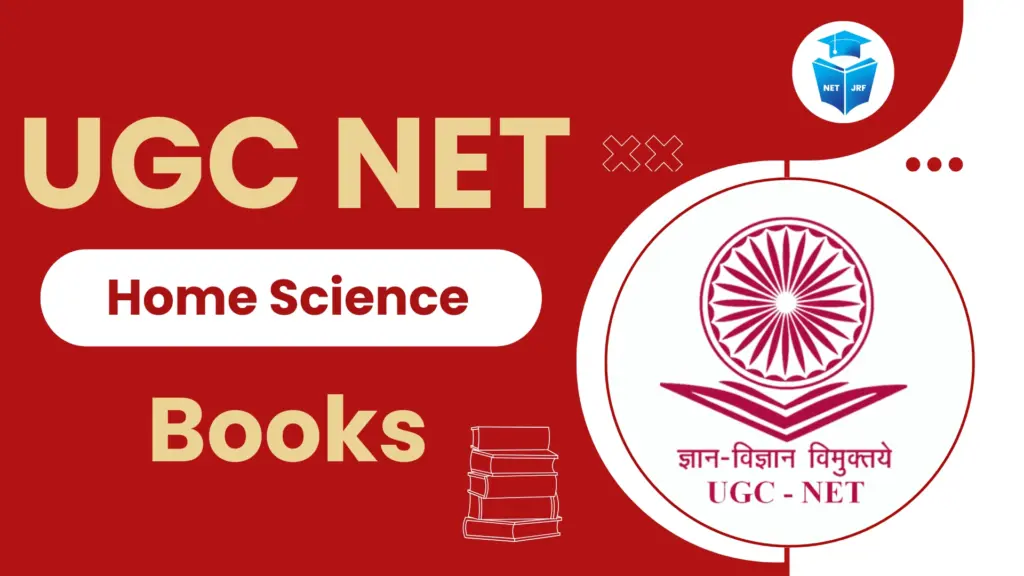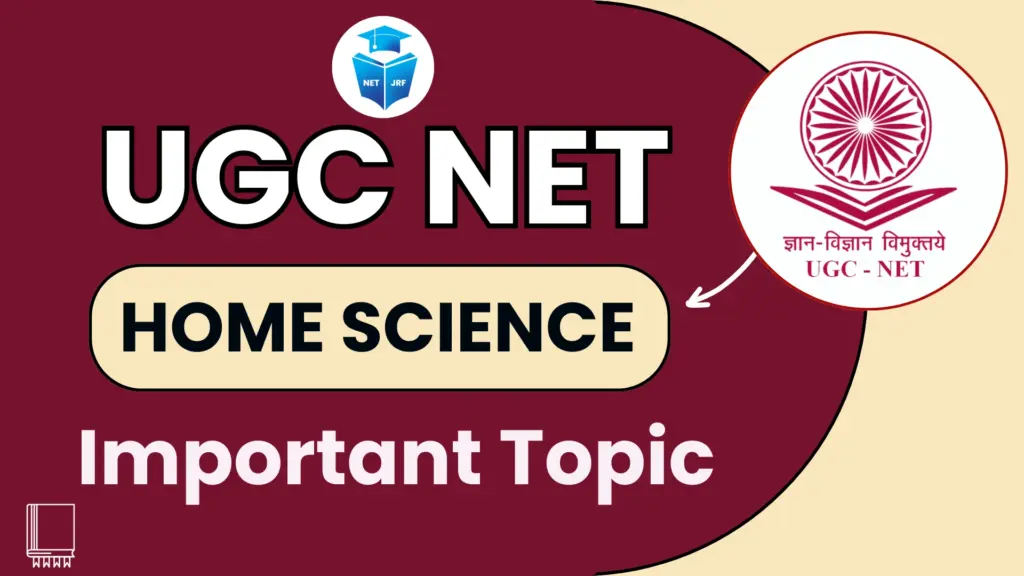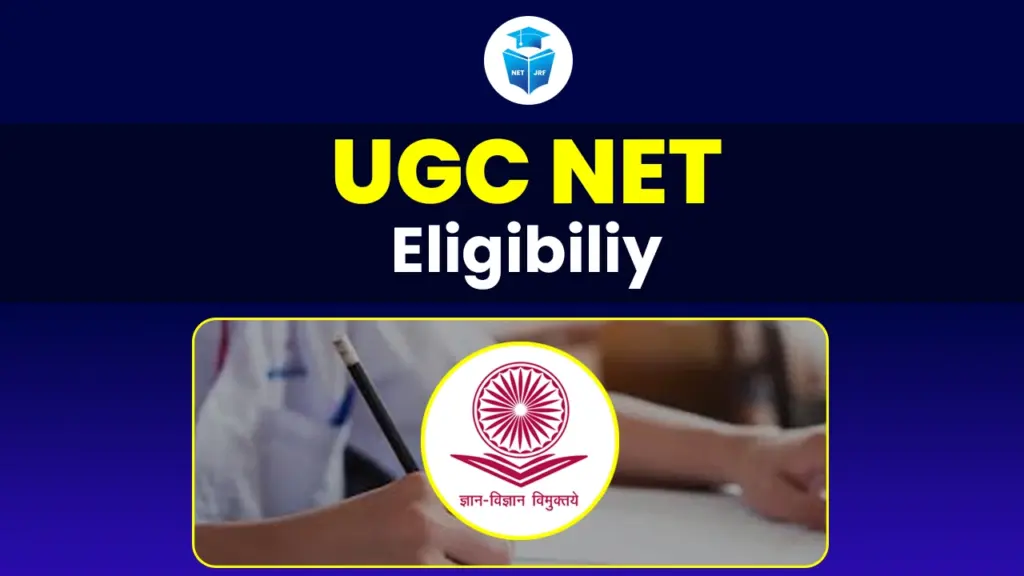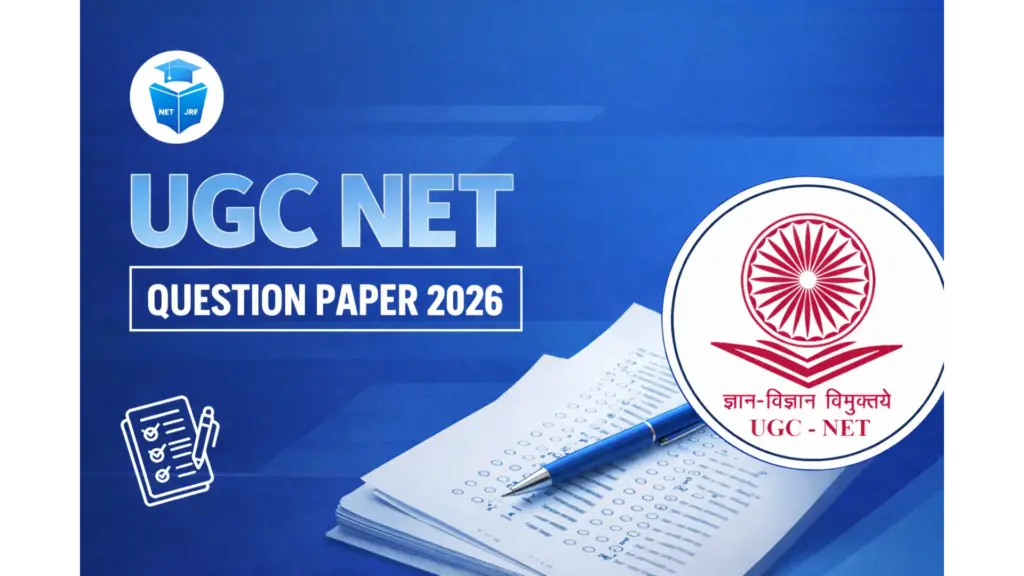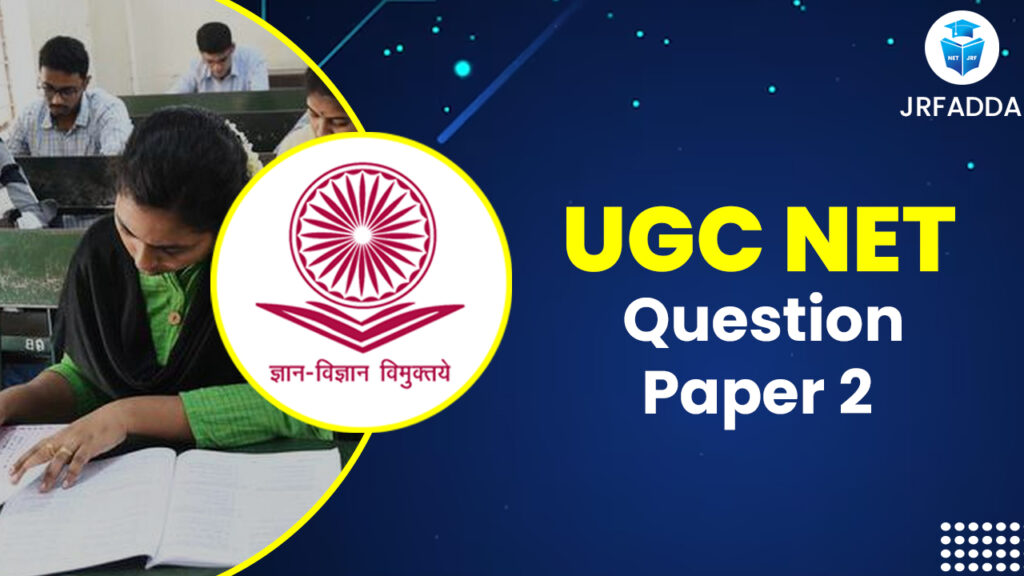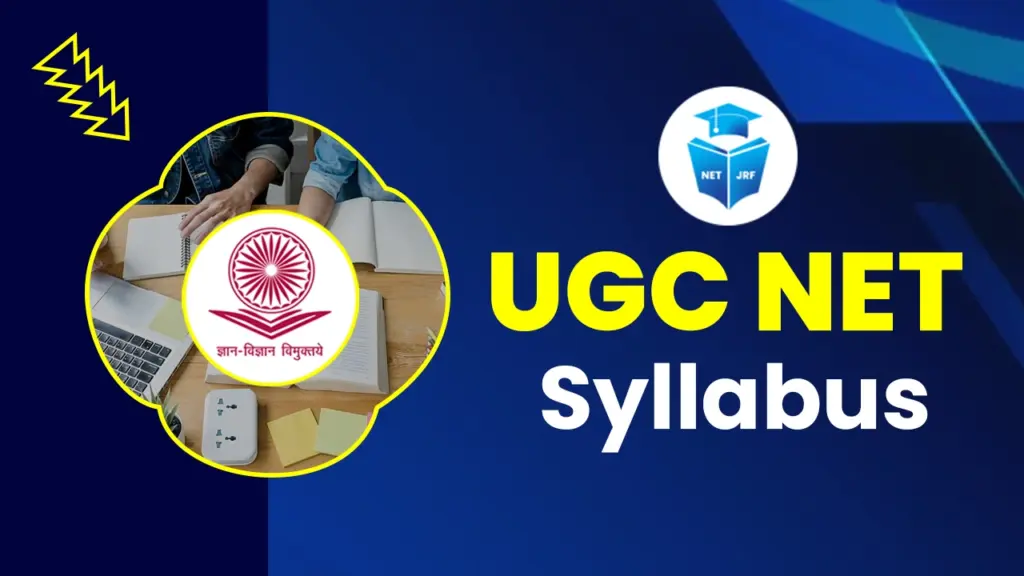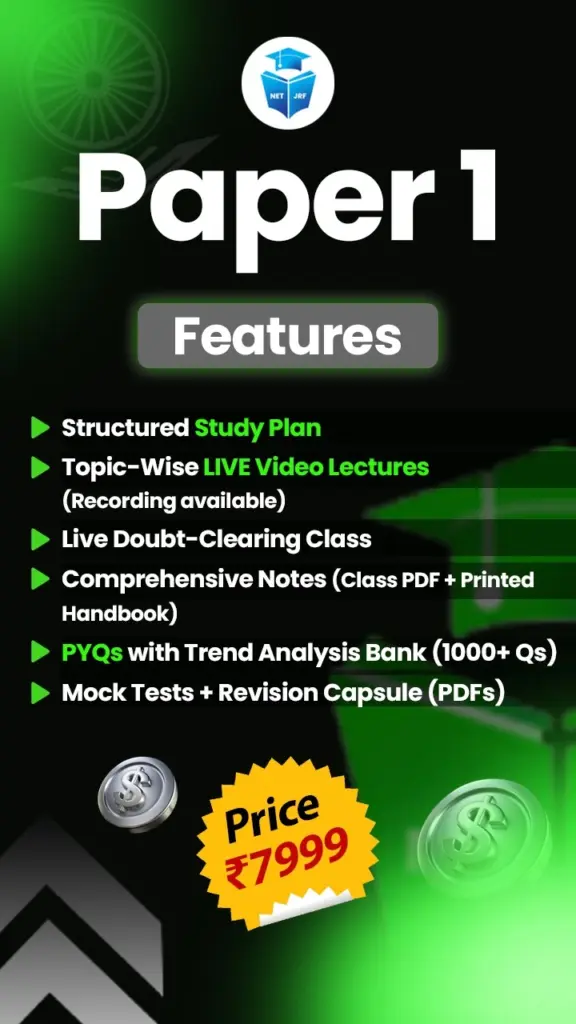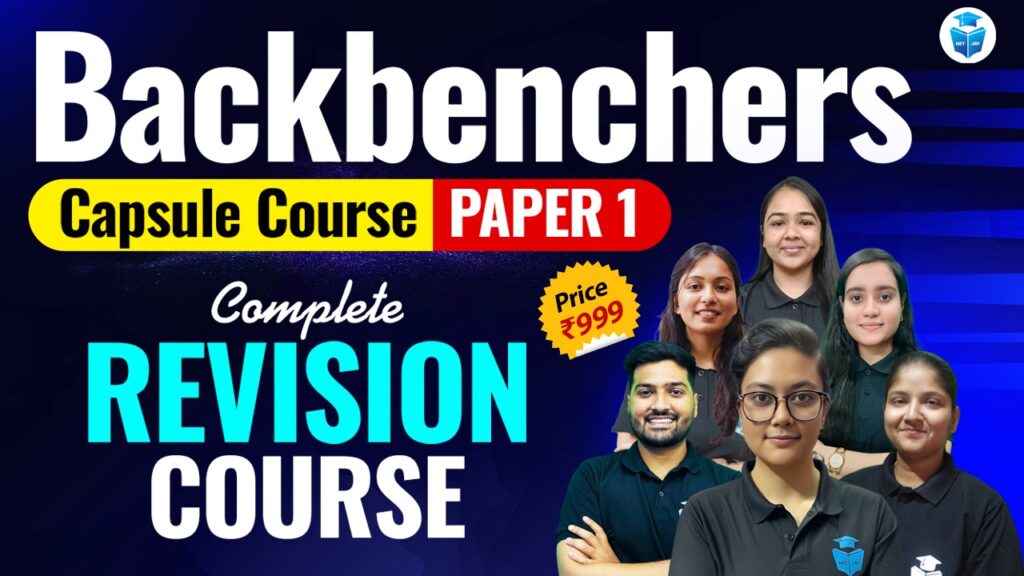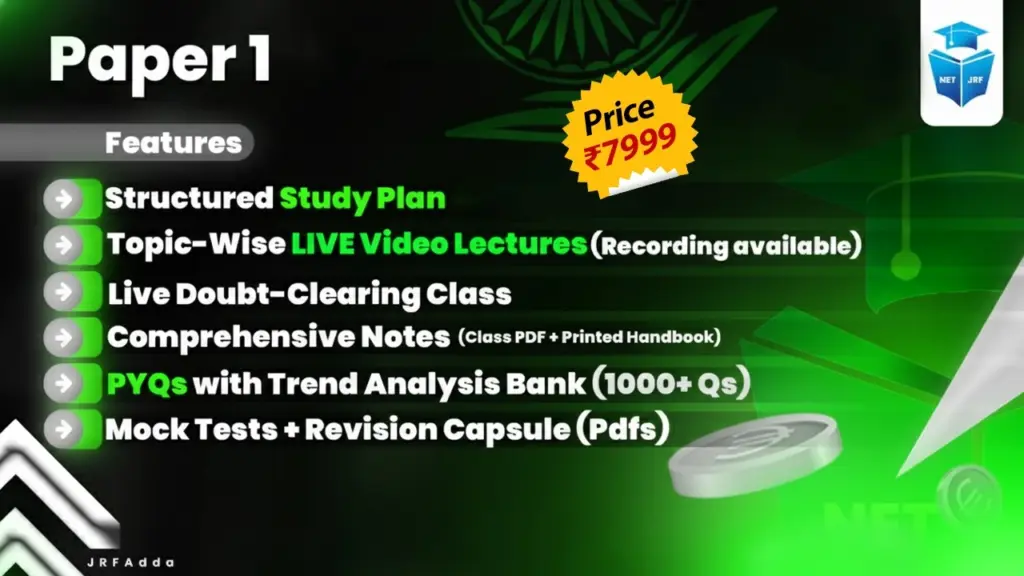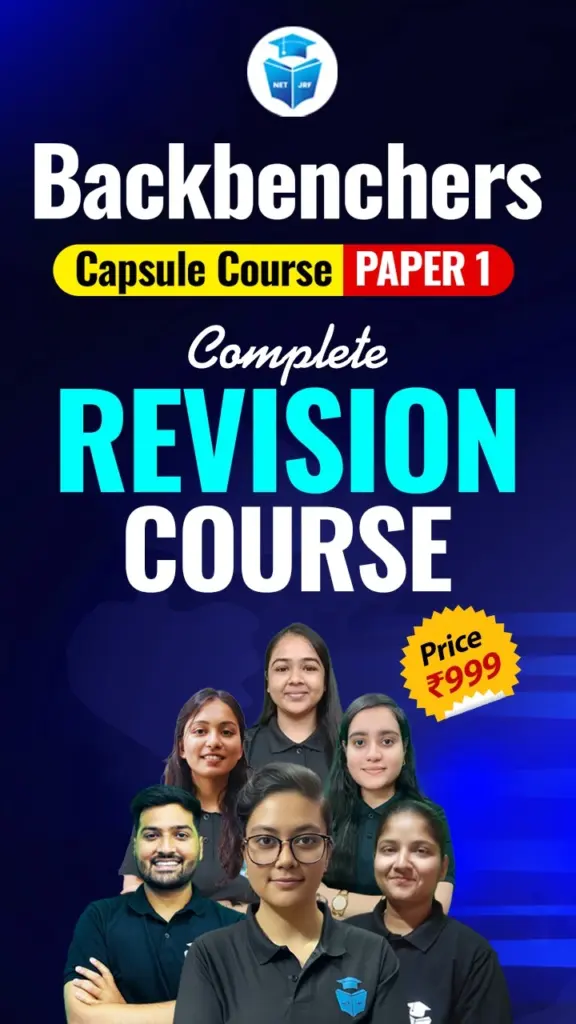UGC NET Comparative Literature 2025 exam offers a golden opportunity for aspirants aiming to become Assistant Professors or secure a Junior Research Fellowship (JRF) in the field of Comparative Literature. As an interdisciplinary field, Comparative Literature involves the study of literary texts across cultures, time periods, languages, and genres. This article covers all essential aspects such as eligibility, syllabus, exam pattern, preparation tips, previous year papers, and includes the UGC NET December 2025 exam concluded on January 6, 2026 Exam Analysis for Paper 1 and Paper 2.
Also Read: UGC NET Selection Procedure 2026
UGC NET Comparative Literature 2025 Exam Analysis 6 Jan 2026, Shift 1
UGC NET Comparative Literature 2025 Shift 1 exam, held on 6 January 2026, was rated moderate in difficulty overall by most candidates.
Paper 1 (General Aptitude) followed a familiar easy-moderate pattern, featuring standard topics like Bloom’s taxonomy, NEP-based questions, and research ethics in Teaching & Research Aptitude. Data Interpretation and Mathematics posed moderate challenges with calculative DI sets, while Logical Reasoning covered fallacies, and ICT/General Awareness stayed predictable—yielding safe attempts of 40-45 out of 50.
Also Read: UGC NET Paper 1 Exam Analysis 2025 December
Paper 2 emphasized theoretical depth in Comparative Literature, with difficult sections on genre theory, critical theorists’ works, translation studies (untranslatability, power dynamics, interpretive frameworks), and interdisciplinary links to visual arts, film, and philosophy. Direct questions from literary historiography, Indian traditions, and thematology provided balance, though heavier theory made it tougher than prior sessions for some.
Also Read: UGC NET Exam Analysis 2025 December
What is UGC NET Comparative Literature?
UGC NET Comparative Literature is one of the subjects that is available in the University Grants Commission National Eligibility Test for those who wish to serve as Assistant Professors or apply for Junior Research Fellowships (JRF) for Comparative Literature in Indian universities and colleges. UGC NET Comparative Literature is a scholarly discipline that entails the study of literature from languages, cultures, and countries, examining themes, movements, genres, and texts from a cross-cultural or interdisciplinary approach. It sometimes entails the comparison of literature with other forms of art such as film, painting, music, or philosophy.
Also Read: UGC NET Result 2025
UGC NET Comparative Literature Eligibility Criteria 2026
The UGC NET Comparative Literature exam is administered by the National Testing Agency (NTA) for students who aspire to become eligible for Assistant Professor or Junior Research Fellowship (JRF) at Indian universities and colleges. To take this test, aspirants should meet certain educational and age-related requirements as defined by the UGC.
UGC NET Comparative Literature Educational Qualification
- Master’s Degree: The candidates should have a Master’s degree in Folk Literature, Comparative Literature, or any related field like English, Indian Languages and Literature, Cultural Studies, or World Literature.
UGC NET Minimum Marks Required
- General/Unreserved/General-EWS: 55% marks in post graduation minimum.
- OBC-NCL/SC/ST/PwD/Third Gender: 50% marks minimum.
Final Year Students
- Students appearing in the final year of the qualifying examination or expecting results are also eligible.
- But they have to clear their degree with the prescribed marks within two years from the date of the NET result, otherwise, they will be disqualified.
UGC NET Age Limit 2025
- Junior Research Fellowship (JRF): Maximum age limit is 30 years.
- Assistant Professor: No upper age limit.
UGC NET Relaxation
- OBC-NCL, SC, ST, PwD, Third Gender, and Women candidates: Up to 5 years relaxation (i.e., up to 35 years).
Also Read: UGC NET Exam 2026
UGC NET Comparative Literature Exam Pattern 2026
The UGC NET Exam Pattern for Comparative Literature 2025 is designed to test the eligibility of candidates for the posts of Assistant Professor and Junior Research Fellowship (JRF) in Indian colleges and universities. The exam consists of two papers administered in a single session with no break.
| Component | Paper I | Paper II (Comparative Literature) |
| Purpose | General Teaching & Research Aptitude | Subject-specific knowledge in Comparative Literature |
| Number of Questions | 50 | 100 |
| Marks per Question | 2 | 2 |
| Total Marks | 100 | 200 |
| Type of Questions | Multiple Choice Questions (MCQs) | |
| Duration | 3 hours (combined for both papers) | |
| Mode of Exam | Computer-Based Test (CBT) | |
| Language | English and Hindi (except for language subjects) | |
| Negative Marking | No | |
Also Read: UGC NET Subject Weightage 2026
UGC NET Comparative Literature Marking Scheme 2025
University Grants Commission National Eligibility Test (UGC NET) in Comparative Literature is meant to test the candidates’ eligibility to hold the posts of Assistant Professor and to be awarded Junior Research Fellowship (JRF) in Indian colleges and universities. The marking pattern for the 2025 test is simply clear-cut to maintain transparency and fairness in marking.
| Paper | Number of Questions | Marks per Question | Total Marks |
| Paper I | 50 | 2 | 100 |
| Paper II | 100 | 2 | 200 |
Also Read: UGC NET Eligibility 2026
| Feature | Details |
| Total Marks | 300 marks (100 for Paper I + 200 for Paper II) |
| Total Number of Questions | 150 (50 in Paper I, 100 in Paper II) |
| Marks per Question | 2 marks |
| Negative Marking | No negative marking |
| Type of Questions | Multiple Choice Questions (MCQs) |
| Mode of Exam | Computer-Based Test (CBT) |
| Language of the Paper | English and Hindi |
UGC NET Comparative Literature Minimum Qualifying Marks 2025
To qualify for the award of Junior Research Fellowship (JRF) or Assistant Professorship by the UGC NET Comparative Literature 2025 examination, candidates are required to obtain a minimum qualifying mark as laid down by the National Testing Agency (NTA). Such marks differ based on the candidate’s category and are applicable to both Paper I and Paper II collectively.
| Category | Minimum Marks Required (Paper I + II combined) |
| General / Unreserved (UR) | 40% aggregate marks |
| OBC (NCL) / SC / ST / PwD / Transgender | 35% aggregate marks |
Also Read: UGC NET Syllabus 2026
UGC NET Comparative Literature Syllabus 2026
The UGC NET Comparative Literature Syllabus 2026 is designed to assess candidates’ overall knowledge of comparative literary studies, including theoretical approaches, historical evolution, translation studies, and interdisciplinary approaches. The syllabus has ten units, each dealing with particular areas of Comparative Literature.
UGC NET Comparative Literature Syllabus 2026 – Unit-Wise
| Unit | Title | Topics Covered |
| Unit I | The Epistemology of Comparative Literature | – Definition, scope, and objectives of Comparative Literature |
| – Evolution of the discipline globally and in India | ||
| – Key concepts: inter literariness, interdisciplinarity, and cross-cultural studies | ||
| Unit II | Literary Historiography | – Approaches to literary history and periodization |
| – National vs. world literature narratives | ||
| – Historiographical debates in Comparative Literature | ||
| Unit III | The Theory of Genres | – Classification and evolution of literary genres |
| – Genre theory and its application in comparative studies | ||
| – Cross-cultural genre analysis | ||
| Unit IV | Thematology | – Study of themes across different literatures |
| – Universal vs. culture-specific themes | ||
| – Methodologies for thematic comparison | ||
| Unit V | Comparative Indian Literature | – Interrelations among Indian literatures |
| – Influence of regional languages and cultures | ||
| – Translation and adaptation within Indian literary traditions | ||
| Unit VI | Translation in Comparative Context | – History and politics of translation |
| – Translation as reception and interpretation | ||
| – Challenges in multilingual and multicultural translations | ||
| – Concepts of untranslatability and silence | ||
| Unit VII | Poetics and Literary Theory | – Indian poetics: Sanskrit, Tamil, and Perso-Arabic traditions |
| – Western classical literary theories | ||
| – Modern literary criticism and theory | ||
| – Application of poetics in comparative analysis | ||
| Unit VIII | Indian Literature | – Major works and authors across Indian languages |
| – Influence of historical and cultural contexts | ||
| – Comparative study of literary movements in India | ||
| Unit IX | Literary Modes, Genres, and Themes | – Exploration of various literary modes and their characteristics |
| – Comparative analysis of genres across cultures | ||
| – Recurring themes and their treatment in different literatures | ||
| Unit X | Interdisciplinarity and Intermediality | – Interaction between literature and other disciplines (e.g., philosophy, sociology, arts) |
| – Study of literature in relation to other media (e.g., film, visual arts) | ||
| – Impact of digital media on literary studies |
UGC NET Comparative Literature 2026 Syllabus PDF Download
You can also download the official UGC NET Comparative Literature Syllabus 2025 PDF from the National Testing Agency (NTA) website and the link given below. The syllabus provides the topic and unit covered in Paper II for the subject code 72 – Comparative Literature.
| Language | Download Link |
| Comparative Literature (English) | Download UGC NET Comparative Literature Syllabus 2026 |
| Comparative Literature (Hindi) | यूजीसी नेट तुलनात्मक साहित्य पाठ्यक्रम 2026 डाउनलोड करें |
Download UGC NET Full Official Syllabus PDF
UGC NET Comparative Literature Question Paper 2025
UGC NET Comparative Literature Question Paper 2025 is a must-have for candidates preparing for upcoming UGC NET cycles under Comparative Literature. It gives a glimpse into the current exam pattern, question types, and difficulty level. Solving the UGC NET Comparative Literature Question Paper 2025 enables candidates to study major topics, get a handle on time management, and enhance accuracy in responding.
| Exam Name | Download Link |
| UGC NET Comparative Literature 2025 December | To Be Updated Soon |
| UGC NET Comparative Literature 2025 June | Download PDF |
Also Read: UGC NET Cutoff 2025
UGC NET Comparative Literature Previous Year Question Papers
Solving previous year question papers is one of the best methods to prepare for the UGC NET Comparative Literature exam. Such papers not only familiarize the candidates with the exam pattern but also provide an idea about the nature of questions being asked, the difficulty level, and the weightage of topics across the syllabus.
| Exam Name | Year | Download PDF |
| UGC NET Folk Literature | 2024 | Download Link |
| UGC NET Folk Literature | 2023 | Download Link |
| UGC NET Folk Literature | 2022 | Download Link |
| UGC NET Folk Literature | 2021 | Download Link |
| UGC NET Folk Literature | 2020 | Download Link |
| UGC NET Folk Literature | 2018 | Download Link |
Also Read: UGC NET Exam Pattern 2026
Career Scope After Qualifying UGC NET Comparative Literature
Passing the UGC NET Comparative Literature exam provides access to a varied number of career opportunities in academe, research, publication, media, and cultural organizations. Given that Comparative Literature as a discipline involves the study of texts across language, culture, genre, and chronology, it provides candidates with critical thinking, analytical, and interdisciplinary competencies that are highly sought across industries.
| Career Domain | Opportunities | Details |
| Academic and Research Careers | Assistant Professor / Lecturer | Eligible for teaching in universities/colleges across India in Comparative Literature, English, etc. |
| PhD and Research Fellowships | NET is a prerequisite for PhD. JRF-qualified candidates get a monthly stipend for full-time research. | |
| Curriculum Developer / Academic Editor | Contribute to syllabus development and edit academic journals or textbooks. | |
| Cultural and Literary Institutions | Work in Cultural Organizations | Join Sahitya Akademi, ICCR, IGNCA etc. for literary events, translation, and seminars. |
| Translation and Interpretation | Work with publishers, literary agencies, or global institutions as a translator/interpreter. | |
| Publishing and Media | Editor / Content Writer / Critic | Roles in literary editing, reviewing, content creation for print and digital media. |
| Scriptwriting and Media Production | Contribute to film/documentary scripts and literary media programs. | |
| International Opportunities | Higher Studies and Teaching Abroad | Pursue fellowships or teaching jobs in foreign universities; valued for interdisciplinary expertise. |
| NGOs and International Organizations | Work with global bodies like UNESCO, UN Women, PEN International in cultural/linguistic roles. | |
| Competitive Exams & Allied Fields | Civil Services Preparation | Many literature graduates prepare for UPSC, PCS, and other administrative exams. |
| Library and Information Science | With added qualifications, work in digital archives, academic or public libraries. | |
| Content Strategy and UX Writing | Join global firms as UX/content writers leveraging literary and linguistic skills. |
UGC NET Comparative Literature Preparation Tips 2026
Below are the UGC NET Comparative Literature preparation tips for year 2025 mentioned below:
- Know the Syllabus: Complete all 10 units; concentrate on inter literariness, thematology, Indian poetics, translation studies.
- Understand the Exam Pattern: 100 MCQs, 2 marks each, no negative marking – try to attempt all questions.
- Make a Smart Study Plan: Spend 2–3 days on each unit. Leave 1–2 weeks for revision and mock tests.
- Master Key Concepts: Concentrate on genre theory, untranslatability, intermediality. Read Indian and international texts.
- Use the Correct Books: Read books by Steven Tötösy, Wellek & Warren, Terry Eagleton, Sahitya Akademi, IGNOU.
- Practice PYQs: Practice previous 5–7 years’ papers to realize question trends and difficulty level.
- Mock Tests: Use online resources to test and monitor your progress. Improve weaker areas.
- Quick Notes: Note down definitions, theorists, timeframes. Utilize flowcharts/mind maps for revision.
- Revise Weekly: Regular revision aids retention. Focus harder in the last 2 weeks.
- Stay Updated & Calm: Look for updates on the NTA site. Apply mindfulness skills to minimize exam stress.
Also Read: UGC NET 2026 Exam Date
Conclusion
The UGC NET Comparative Literature 2025 exam opens up a rewarding path for literature enthusiasts who aim to contribute academically and professionally through teaching and research. Its interdisciplinary nature, blending themes across cultures, languages, and art forms, makes it a highly enriching subject. Candidates who prepare strategically—focusing on the detailed syllabus, understanding the exam pattern, and practicing past papers—stand a strong chance of success. From securing roles in academia and research to working in cultural, media, and international institutions, qualifying this exam can truly be a turning point in one’s career. Stay focused, stay informed, and let your passion for literature guide your journey.
UGC NET Comparative Literature 2025 FAQs
What is the exam pattern for UGC NET Comparative Literature 2025?
The test is of two papers, taken in a single sitting. Paper I contains 50 questions of teaching and research aptitude (100 marks), and Paper II contains 100 questions of Comparative Literature (200 marks). All are MCQs with no negative marking.
What is the passing mark for UGC NET Comparative Literature 2025?
General category candidates should have at least 40% aggregate marks together in both papers, and reserved categories should have 35%.
Am I eligible for the Junior Research Fellowship (JRF) through this test?
Yes, the qualified candidates with required cut-off can apply for JRF, which offers stipend for full-time study.
What are the career prospects after qualifying UGC NET Comparative Literature?
Options for a career include working as Assistant Professor in colleges/universities, PhD research, in cultural institutions, translation, publishing, media, international academic positions, and even civil services preparation.
Are there books which are supposed to help one prepare for UGC NET Comparative Literature 2025?
Yes, one must read the works of Steven Tötösy, Wellek & Warren, Terry Eagleton, Sahitya Akademi publications, and IGNOU study material.

